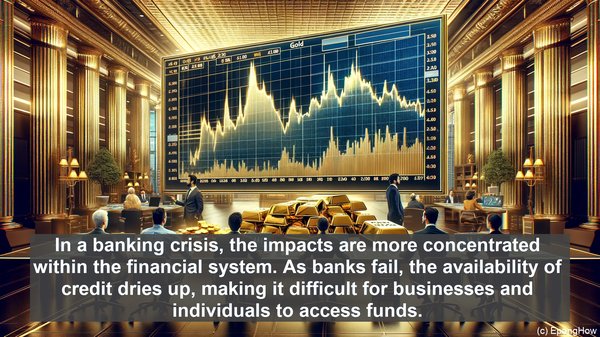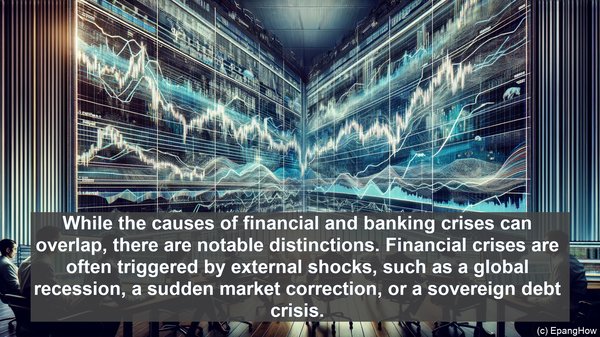Introduction: Navigating Economic Turmoil
Hello, everyone! In the intricate world of finance, it’s not uncommon to encounter terms like ‘financial crisis’ and ‘banking crisis.’ While they may seem interchangeable, they actually refer to distinct events, each with its own set of causes and consequences. Today, we’ll embark on a journey to understand the differences between these crises, unraveling the complexities along the way.

Defining the Terms: Financial Crisis and Banking Crisis
Before diving into the distinctions, let’s establish some definitions. A financial crisis is a broad term encompassing a range of events that disrupt the stability of the financial system. It often involves a significant decline in asset prices, a sharp increase in bankruptcies, and a general loss of confidence in the economy. On the other hand, a banking crisis is a specific type of financial crisis that primarily affects the banking sector. It typically involves a wave of bank failures, leading to a severe contraction in credit availability.
Causes: Triggers Behind the Crises
While the causes of financial and banking crises can overlap, there are notable distinctions. Financial crises are often triggered by external shocks, such as a global recession, a sudden market correction, or a sovereign debt crisis. These events can have far-reaching consequences, impacting various sectors and institutions. In contrast, banking crises are frequently rooted in internal factors within the banking industry itself. These can include risky lending practices, inadequate risk management, or excessive exposure to certain assets, such as real estate. It’s important to note that a banking crisis can also be a precursor to a broader financial crisis, as we saw in the 2008 global financial meltdown.
Impacts: Ripple Effects on the Economy
Both financial and banking crises can have profound impacts on the economy. In a financial crisis, the effects are widespread, affecting not just the banking sector but also other industries. Stock markets can plunge, businesses can fail, and unemployment can skyrocket. The consequences can be long-lasting, with economies taking years to recover. In a banking crisis, the impacts are more concentrated within the financial system. As banks fail, the availability of credit dries up, making it difficult for businesses and individuals to access funds. This, in turn, can lead to a contraction in economic activity, exacerbating the crisis further.
Remedies: Addressing the Crises Head-On
When faced with a financial or banking crisis, policymakers have a range of tools at their disposal. In a financial crisis, central banks often play a crucial role, employing measures like interest rate cuts, liquidity injections, and even asset purchases to stabilize the markets. Government intervention through fiscal stimulus packages can also be instrumental in jumpstarting the economy. In a banking crisis, the focus is on restoring confidence in the banking sector. This can involve measures like bank recapitalization, stricter regulations, and enhanced supervision. The goal is to not only address the immediate crisis but also to implement reforms that prevent a recurrence in the future.

